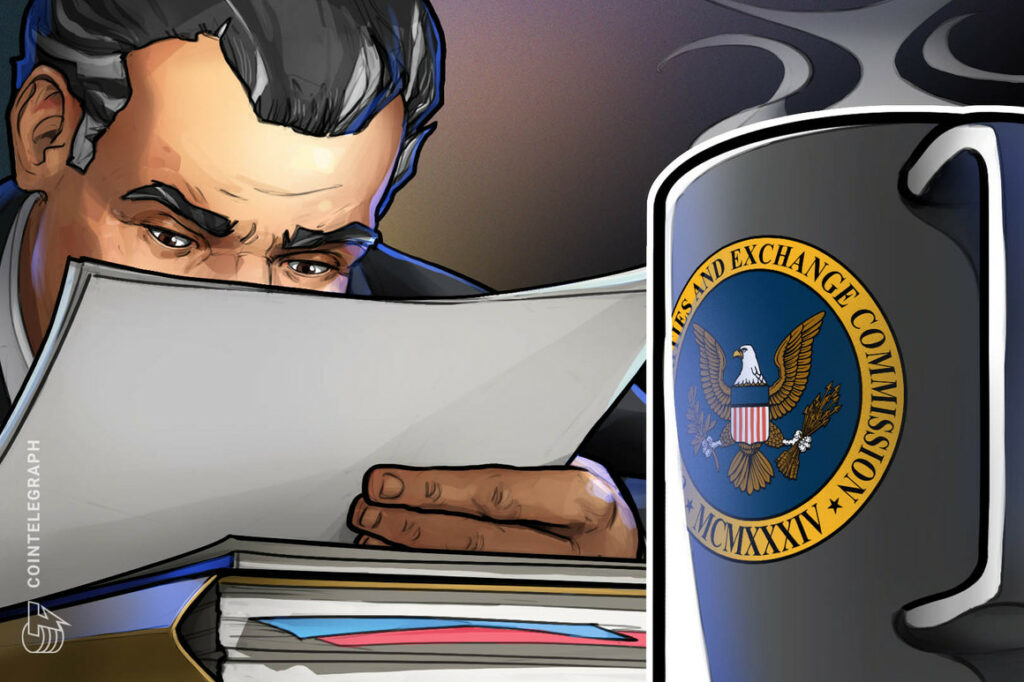Disclaimer: The article has been updated based on an official response from American CryptoFed DAO. COO Xiaomeng Zhou explained why the SEC is not legally allowed to issue a stop order.
American CryptoFed DAO, the first decentralized autonomous organization (DAO) to get legal recognition in the United States, is at risk of losing its registration after the U.S. Securities and Exchange Commission (SEC) dug up anomalies in the Form S-1 registration statement dated Sept. 17, 2021.
The Wyoming Secretary of State’s office recognized American CryptoFed as a legal entity in July 2021, at a time when the organization’s CEO, Marian Orr, believed that “Wyoming is arguably the top blockchain jurisdiction in the world.”
However, on Nov. 18, 2022, the SEC instituted administrative proceedings against the DAO to determine the issuance of a stop order. A stop order from the SEC would retract American CryptoFed’s registration and bar sales of in-house tokens, Ducat and Locke.
According to the SEC’s Division Of Enforcement, the Form S-1 registration statement filed by American CryptoFed lacks vital information, such as audited financial statements and details about its business and management. The SEC further believed that the American CryptoFed filing contains “misleading statements and omissions” while being inconsistent in describing the tokens as securities.
In this regard, David Hirsch, Chief of the Enforcement Division’s Crypto Assets and Cyber Unit stated that:
“American CryptoFed not only failed to comply with the disclosure requirements of the federal securities laws, but it also claimed that the securities transactions they seek to register are not in fact securities transactions at all.”
Hirsch clarified that issuers must provide the required disclosure information to the SEC. However, the SEC claimed non-cooperation from American CryptoFed during its examination of its registration statement.
Based on the information made available to the public, Hirsch shared SEC intent regarding the DAO:
“The Enforcement Division is seeking to stop American CryptoFed’s registration to protect investors against misleading information.”
Speaking to Cointelegraph, American CryptoFed COO and organizer Xiaomeng Zhou, argued against SEC’s claims, stating that the subject matter pertaining to the effectiveness of the registration statement (Section 8(d) Order) is unlawful, stating that American CryptoFed DAO’s Form S-1 Registration Statement (“Form S-1”) includes a “Delaying Amendment.”
As a result, the American CryptoFed DAO’s Form S-1 is a subject matter of Section (a) and Section 8(b) of the Securities Act of 1933, according to Zhou. He added:
The Section 8(b) of the Securities Act of 1933 only allows the SEC to issue a Refusal Order to provide further clear guidance for American CryptoFed DAO to complete the Form S-1 registration (not Stop Order).
Zhou reiterated that Section 8(b) of the Securities Act of 1933 allows the SEC to issue a Refusal Order and provide clear guidance to complete the Form S-1 registration. However, it does not allow the federal agency to issue a Stop Order:
“As a result, the SEC abused the Securities Act of 1933 to unlawfully delay, stop and obstruct American CryptoFed DAO’s legitimate disclosure through the Form S-1 Registration Statement.”
Cointelegraph found that the official Telegram channel for the DAO has been disabled.

However, the deletion of the Telegram account was not yet linked to the SEC’s investigation at the time of writing.
Related: US national crypto laws should look like New York’s, says state regulator
The Securities Commission of the Bahamas (SCB) recently ordered the transfer of all digital assets of FTX Digital Markets (FDM) to a digital wallet owned by the commission.
Securities Commission of The Bahamas Assumes Control of Assets of FTX Digital Markets Ltd. pic.twitter.com/IzW4PGZSJm
— Securities Commission of The Bahamas (@SCBgov_bs) November 18, 2022
The assets were seized “for safekeeping,” according to an official statement shared by the SCB.

